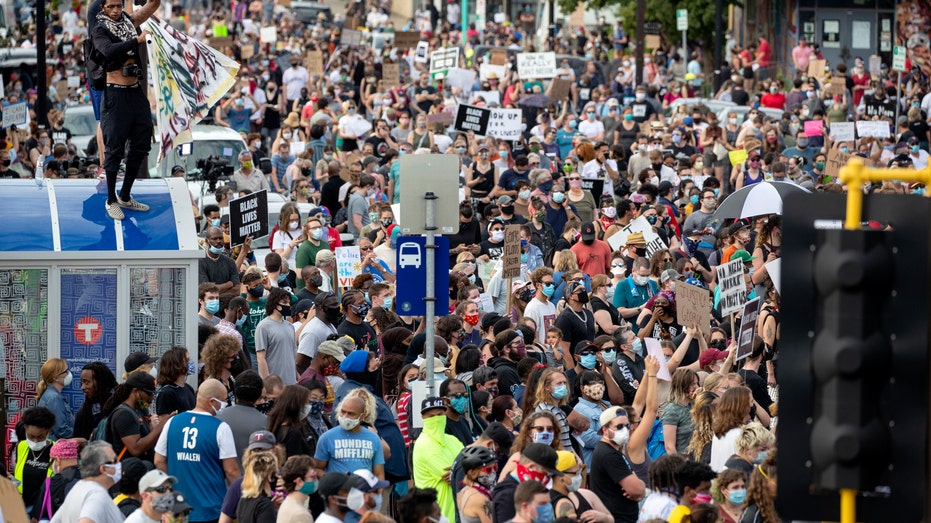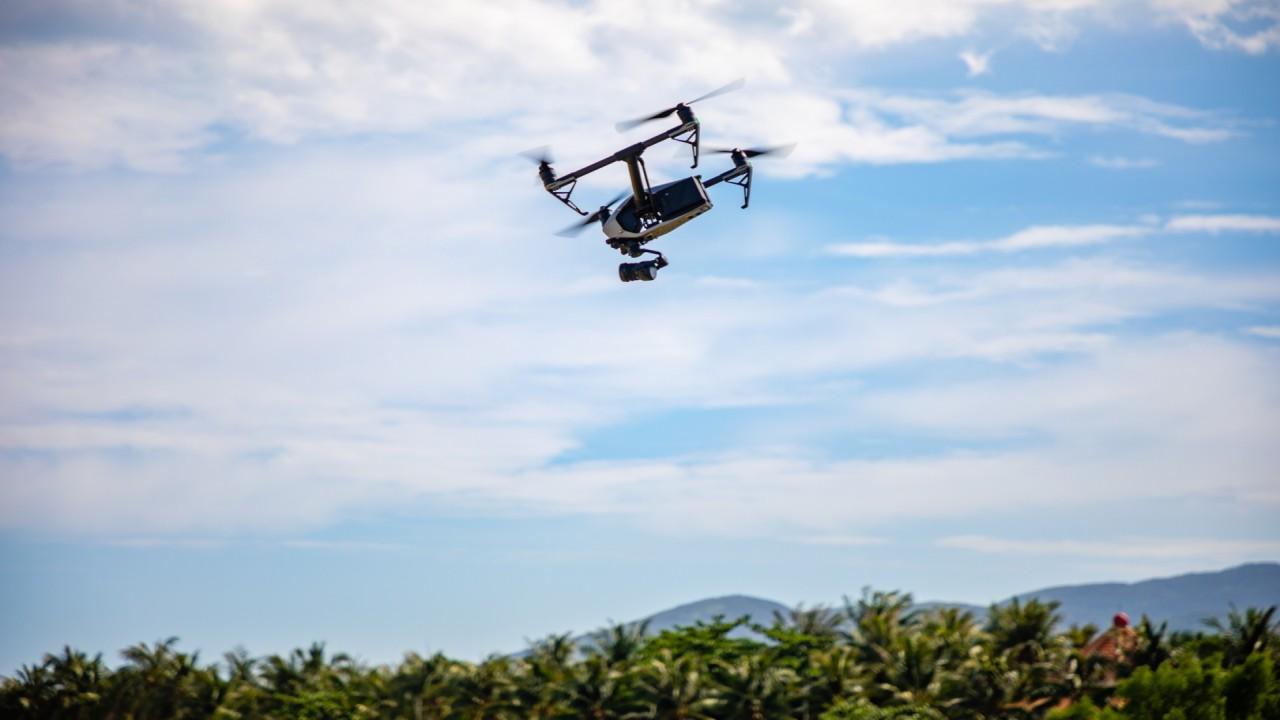Drone surveillance of protests comes under fire
Predator drone was observed flying over protests in Minneapolis on May 29
WASHINGTON -- The government's use of cutting-edge surveillance to monitor protests is coming under scrutiny by lawmakers and activists, including conservatives who see it as a threat to constitutional rights, amid a national rethinking of the role of police.
The issue came to the fore after a Predator drone operated by U.S. Customs and Border Protection was observed flying over protests in Minneapolis on May 29 in the wake of the killing of George Floyd in police custody there. Drone flights have also been reported over San Antonio and Detroit, according to a letter Tuesday from about three dozen House members.
The letter, which called for a halt to surveillance of peaceful protests, also cites reports of surveillance flights by other agencies using conventional aircraft over Washington, D.C.
AMAZON SUES FORMER VP WHO TOOK GOOGLE CLOUD JOB
"Americans have a healthy fear of government surveillance that started at the founding of our country and has continued to modern times," said the letter signed by lawmakers including Reps. Anna Eshoo (D., Calif.) and Bobby Rush (D., Ill.).

Protesters gather calling for justice for George Floyd on Tuesday, May 26, 2020, in Minneapolis, Minn. Floyd died after being restrained by Minneapolis police officers on Memorial Day. (Carlos Gonzalez/Star Tribune via AP)
While the congressional scrutiny so far is coming from Democrats, some conservatives are troubled as well. "It's disturbing to see tools built to gather military intelligence being used to watch U.S. citizens," said Billy Easley II, a senior policy analyst at Americans for Prosperity, a conservative organization.
MULTI-BILLION DOLLAR REVENUE HIT BURNS STARBUCKS AS PANDEMIC FORCES CLOSURES
"Drones should not be used by the government to monitor or collect data on First Amendment activity," he said. "They should only be used when there is a threat to life or property, and the federal government should be transparent about the circumstances of their use."
CBP confirmed that the agency flew a Predator over Minneapolis, but disputed the claim in the congressional letter that drones were flown over Detroit and San Antonio. The Minneapolis drone flight was first reported by the Project on Government Oversight, a nonpartisan research group.
CBP also used helicopters and planes to monitor protests, an agency spokesman said. He said the video captured is shared with local law enforcement to determine the size and movements of protests, and no attempt is made to identify individual protesters.
A second CBP official said the images provide "situational awareness." He added: "If you're law enforcement...it'd be helpful to know if it's 20 people or 2,000 people."
VARNEY: SHOPPING AS WE KNOW IT IS OVER
In their letter Tuesday, lawmakers also cited reports that other government agencies including the Federal Bureau of Investigation and the Air National Guard are involved in protest surveillance. The FBI and Air National Guard didn't immediately respond to requests for comment.
Federal officials including Attorney General William Barr have said their efforts during the protests have been focused on apprehending and charging what he called "violent radical agitators." Mr. Barr has said violence by extremist groups during the protests amounts to domestic terrorism.
The surveillance has alarmed those who worry that federal, state and local agencies could be deploying an array of sophisticated tactics and techniques -- including high-zoom surveillance cameras, facial-recognition software, cellphone monitoring devices and social-media tracking techniques -- to monitor civilians engaged in peaceful demonstrations.
WHERE CORONAVIRUS CASES ARE SPIKING AS US ECONOMY EMERGES FROM LOCKDOWN
"No government agency should be facilitating the over-policing of the black community, period," said ACLU senior legislative counsel Neema Singh Guliani in a statement. She added that the CBP's "use of military technology to surveil protesters inside U.S. borders is deeply disturbing, especially given CBP's lack of clear and strong policies to protect privacy and constitutional rights."
While technology such as smartphones has helped document police violence, activists say it also can hamper protesters' efforts to bring about change, by scaring some away.
GET FOX BUSINESS ON THE GO BY CLICKING HERE
The surveillance threatens to chill protesters' First Amendment rights, said Saira Hussain, a staff attorney at the Electronic Frontier Foundation, a digital-rights organization that has focused on high-tech surveillance.
CLICK HERE TO READ MORE ON FOX BUSINESS
"Why give law enforcement every single possible tool to use at its fingertips?" she said, adding: "I think this is a time of reckoning to figure out, do we want these tools to exist?"




















